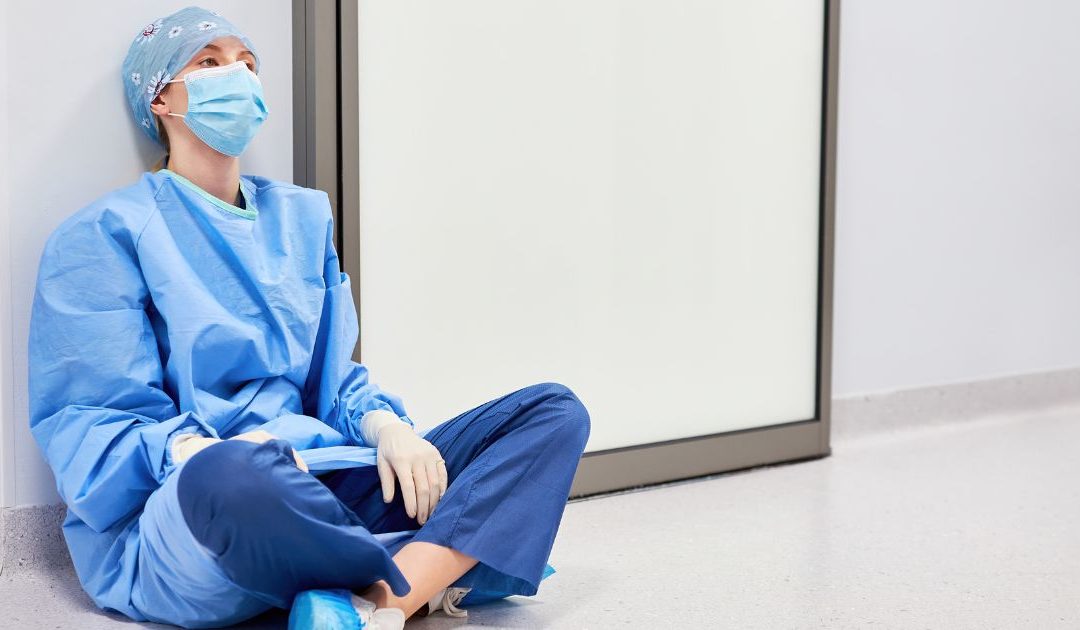Women healthcare workers face increasing suicide rates, fatal overdoses, and burnout.
Healthcare workers are on the frontlines of patient care, but increasingly, they are also at the center of a hidden crisis. Women—who make up 80-90% of the global healthcare workforce—are facing unprecedented levels of mental and physical distress, leading to rising suicide rates, fatal overdoses, and mass exits from the field.
The World Health Organization (WHO) projects a shortfall of 10 million healthcare workers by 2030, a critical concern for public health. But the human and economic costs of this workforce crisis remain unknown and largely unaddressed.
Alarming Suicide and Overdose Rates Among Women in Healthcare
Recent studies show that women healthcare workers face a significantly higher risk of suicide and overdose compared to the general population.
In the UK, data from the Office of National Statistics revealed that more than 360 nurses attempted suicide in 2022, and 72 medical professionals took their own lives in 2020.
In the U.S., between 2007 and 2018, the Centers for Disease Control and Prevention (CDC) recorded 2,374 suicides among nurses and 857 among doctors.
Globally, thousands of healthcare workers have died by suicide or overdose in recent years, leaving families, colleagues, and communities in mourning.
Despite these alarming figures, experts warn that suicides and overdoses among healthcare workers are underreported.
“One death by suicide was calculated in the UK to cost the economy an average of 1.46 million pounds,”
highlighting the immense social and financial burden of this crisis.
Why Are Women Healthcare Workers at Higher Risk?
Healthcare workers, particularly women in low-paid, high-stress roles, face a perfect storm of workplace challenges that contribute to mental and physical exhaustion:
- Long working hours and chronic understaffing
- Increased bureaucracy and administrative burdens
- Lack of decision-making power and professional autonomy
- Exposure to workplace violence (experienced by 8-38% of healthcare workers globally)
- Career stagnation due to institutional barriers
- Balancing professional responsibilities with unpaid domestic caregiving
The past four years have amplified these stressors, pushing nurses, first responders, and front-liners to their breaking point. Many are now struggling with burnout, major depression, PTSD, Long COVID, and chronic fatigue syndromes—conditions known to increase the risk of suicide and overdose.
Toxic Work Environments and Drug Dependency
Healthcare workers, particularly those in high-stress hospital and nursing home settings, have increased access to prescription medications, raising concerns about self-medication, drug theft, and dependency.
Healthcare support workers (such as nursing home aides) are nearly twice as likely to die from opioid-related overdoses as other healthcare professionals. Suicides among healthcare workers frequently involve overdoses or poisoning, often using psychiatric drugs, opioids, or a combination of medications.
The interaction between multiple prescription drugs and workplace stress is poorly understood, but it is particularly dangerous for women, who:
- Are more likely to be prescribed antidepressants and hormonal medications.
- Experience stronger side effects and drug interactions due to gender differences in metabolism and immune response.
- Face a higher risk of adverse reactions from psychotropic medications.
Medicalization as a Coping Mechanism
The COVID-19 pandemic fueled a sharp rise in antidepressant prescriptions and over-the-counter drug use among healthcare workers. While medications can be helpful, their misuse—intentional or accidental—has deadly consequences.
Paracetamol (acetaminophen) overdoses skyrocketed in several countries, prompting Australia and Sweden to restrict sales. Over 8,700 cases of acetaminophen poisoning were reported in 2019-2020 alone, with a disproportionate impact on women. Unregulated use of prescription medications in hospitals has led to increased drug theft, falsified credentials, and unsafe practices, further jeopardizing patient care.
The Impact on Healthcare Systems and Patient Safety
This crisis is not just a personal tragedy for healthcare workers—it’s a public health emergency. The consequences extend far beyond individual cases, affecting entire healthcare systems:
- Workforce shortages: Hundreds of thousands of healthcare workers are leaving the sector for less stressful, better-paid jobs.
- Clinical errors: Overworked and exhausted staff increase the risk of mistakes, putting patients at greater risk of harm.
- Diminished quality of care: Understaffing leads to longer wait times, higher patient mortality rates, and growing distrust in healthcare systems.
Finding Humanity in Healthcare
To prevent further tragedy, urgent reforms are needed to protect and support healthcare workers. Solutions include:
- Workforce well-being programs: Prioritizing mental health support, fair wages, and reasonable working hours.
- Regulating medication use: Improving oversight of prescription drug access and interactions, particularly for women’s health.
- More balanced staffing models: Addressing chronic understaffing and ensuring healthcare workers get sufficient rest and recovery time.
- Gender-sensitive health policies: Recognizing and addressing the unique risks and challenges faced by women in healthcare.
- Workplace culture changes: Reducing administrative burdens and fostering a supportive, non-toxic work environment.
Hard times can lead to positive change, but only if healthcare leaders prioritize humanity over bureaucracy. A healthy, well-supported workforce is not just an investment in caregivers, but a lifeline for society as a whole.
MedMalDoctors has a nation network of medical experts that provides lawyers with opinions on Causation and Standard of Care regarding potential medical malpractice.
Our Medical Director, Dr. Roger Hodkinson, has particular interest in Covid related issues and he encourages you to call him for an exploratory conversation.
To learn more about how MedMalDoctors can assist you in your next medical malpractice case, please call us at 1.800.590.9631 or send an email to marketing@medmaldoctors.ca
From the Second Street

